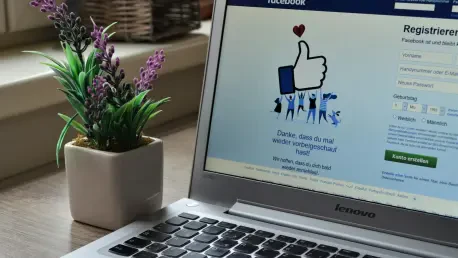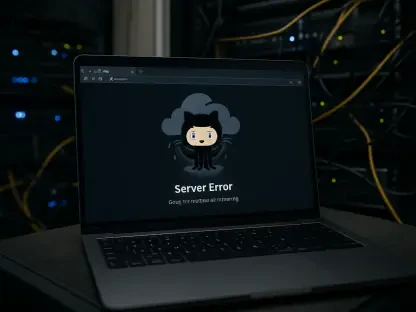The realm of U.S. visa policy, especially concerning international students, has undergone a significant shift with the U.S. State Department mandating public disclosure of social media profiles. This substantial change originates from the desire for enhanced national security, a concern that heightened especially after the tragic 2015 terrorist attack in San Bernardino. The policy requires nonimmigrant student visa applicants—specifically F, M, and J visas—to make their social media accounts public, spurred by the discovery of inflammatory social media posts by attackers who initially concealed their intentions. This initiative, rooted in protecting American soil, invites a spectrum of discussions about privacy, security, foreign perception, and broader implications for the educational landscape.
Stricter Social Media Scrutiny
Historical Context and Policy Evolution
In renewed efforts to integrate social media checks into visa procedures, the Obama administration first proposed voluntary social media disclosure. However, the Trump administration later made this requirement mandatory for most visa applications. Recently, the expectation to make social media accounts public represents a further tightening of security measures. This evolution implies a growing focus on preventing entry to individuals with potential for harm. While specific criteria for assessing social media content have not been publicized, an outline from Politico suggests consular officials examine posts for hostility toward U.S. citizens and interests, threats to security, or support for terrorism. The policy aims to sift through suitable visa applicants by closely monitoring their social media presence to avert potential threats.
Mixed Reactions and Applicant Concerns
This new directive received a diverse range of responses. As expected, there were immediate reactions among visa applicants, some of whom resorted to sanitizing their social profiles by deleting or editing controversial content. Particularly, students from countries like South Korea and India who aspire to study in the U.S. have sought services specializing in erasing sensitive posts. Ironically, this shift in policy coincided with the U.S. denying visas to foreign officials accused of censoring American citizens’ online content. The influx of reservations among international students highlights a fundamental conflict between national security intentions and personal freedom over digital expressions. For many students, this shift necessitated a reevaluation of their digital footprints, prompting them to rethink ways they present themselves online.
Privacy and Freedom of Speech
Concerns from Privacy Advocates
The rigorous scrutiny of social media accounts raised alarms among privacy advocates. Sophia Cope from the Electronic Frontier Foundation criticized this move, seeing it as a potential invasion of individual privacy. Cope emphasized that people should be entitled to maintain their privacy on social media and restrict interactions to close contacts. Such measures by the U.S. government pose substantial risks, threatening to stifle freedom of speech and increase chances of misinterpretation due to misunderstandings of digital communication. The criticism resonated among civil liberties advocates who argue that there is limited evidence supporting that such pervasive monitoring effectively mitigates security threats, especially given past instances of inaccurate characterizations.
Risks of Misinterpretation
Another significant voice of concern, Gregory Nojeim from the Center for Democracy & Technology, questioned whether public profiles might deter genuine applicants rather than identify threats. He underscored the need to distinguish between critiques of government policies and animosity toward the nation. Such a distinction is critical considering that governmental dissent is a core aspect of American principles. Furthermore, Nojeim speculated that requiring public profiles could lead students to seek education elsewhere, affecting the United States’ academic landscape negatively. This context provoked reflections on reciprocity; should foreign nations impose similar demands, the U.S. would likely react strongly, suggesting the divisive nature of such a policy.
Balancing Security with Educational Impact
Automation and Language Barriers
A core challenge in executing this policy lies in determining threat levels based on social media content. Various languages used by international students can complicate interpretation, raising questions about reliance on automated technologies and artificial intelligence for accurate assessments. Past trials led by the U.S. Department of Homeland Security exposed these shortcomings. Their pilot tests demonstrated that human evaluation was more effective than automated screening. This limitation emphasizes the nuances that belong to social content that automation may struggle to understand, highlighting potential drawbacks tied to overly relying on technology for complex determinations.
Navigating the Economic Landscape
The economic contribution of international students constitutes a considerable concern tied to this policy. According to NAFSA, international students substantially bolstered the U.S. economy, adding billions in revenue and supporting hundreds of thousands of jobs. This showcases the enduring value of these students beyond academic environments—culturally enriching and economically bolstering communities. Critics point to potential economic decline if international students choose other destinations due to concerns over infringements of digital freedom. They stress the delicate balance between respect for individual privacy, freedom of expression, and sustaining the economy through academic inclusion.
Future Considerations and Policy Implications
The landscape of U.S. visa policy, particularly concerning international students, has undergone notable changes with the U.S. State Department’s new requirement for public disclosure of social media profiles. This major policy shift aims to bolster national security, a priority that intensified after the 2015 terrorist attack in San Bernardino. In this context, applicants for nonimmigrant student visas, especially those filing for F, M, and J visas, are now required to make their social media accounts public. This move stems from the revelation that attackers with hidden inflammatory social media posts managed to initially mask their intentions. The policy, designed to safeguard American interests, ignites discussions on privacy, security, the U.S.’s image abroad, and its broad repercussions on the education sector. This development underscores the tension between ensuring safety and maintaining personal privacy, all while highlighting the ongoing challenges faced by authorities in adapting policies to contemporary threats.









